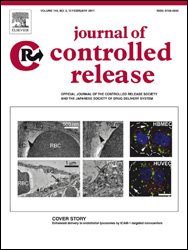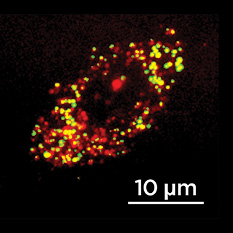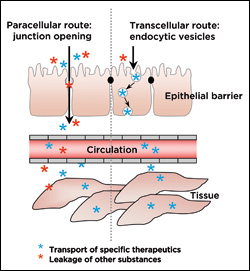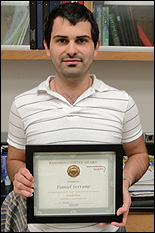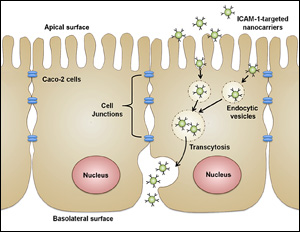News Story
Hsu Drug Delivery Research Wins GRID Poster Session
Fischell Department of Bioengineering graduate student Janet Hsu, advised by Assistant Professor Silvia Muro, won the "Pushing the Boundaries of Science" division at the University of Maryland's 2011 Graduate Research and Interaction Day (GRID) for her presentation of an enhanced drug delivery method specifically designed to address the challenges of crossing the body's blood brain barrier. The award comes with a grant that will help fund Hsu's travel to the 38th Annual Meeting and Exposition of the Controlled Release Society in July 2011, where she is scheduled to deliver a presentation on her work.
GRID, which is run by the Graduate Student Government, is a campus-wide event in which graduate students from all parts of the university present and discuss their work with faculty and fellow students, enabling them to receive feedback from a broader audience and perfect their conference presentation skills. Participants make oral and poster presentations that are judged in a variety of categories by faculty, postdoctoral fellows, administrators, and other specialists from around campus.
Hsu's poster, "Enhanced Delivery of Therapeutic Enzymes into the Brain," described novel drug carriers that are designed to target the brain, cross the blood brain barrier, and deliver their therapeutic cargo into neurons. The development of this kind of delivery system is especially important to the treatment of diseases of and affecting the brain, because the blood brain barrier, a tight layer of endothelial cells that regulate traffic between the circulation and brain tissue, consistently blocks the entry of foreign molecules. As a result, doctors must use invasive techniques to force medication in. Hsu's carriers are designed to be viewed as friendly by the blood brain barrier and to mediate the transportation of the drugs attached to them. This would allow medication to be administered to the patient by an ordinary IV line. In her study, Hsu's proof-of-concept demonstrated that her carriers enhance the safe delivery of their cargo to the brain, making them a promising platform for future development.
Published April 17, 2011

